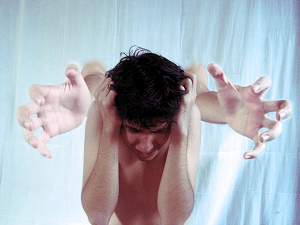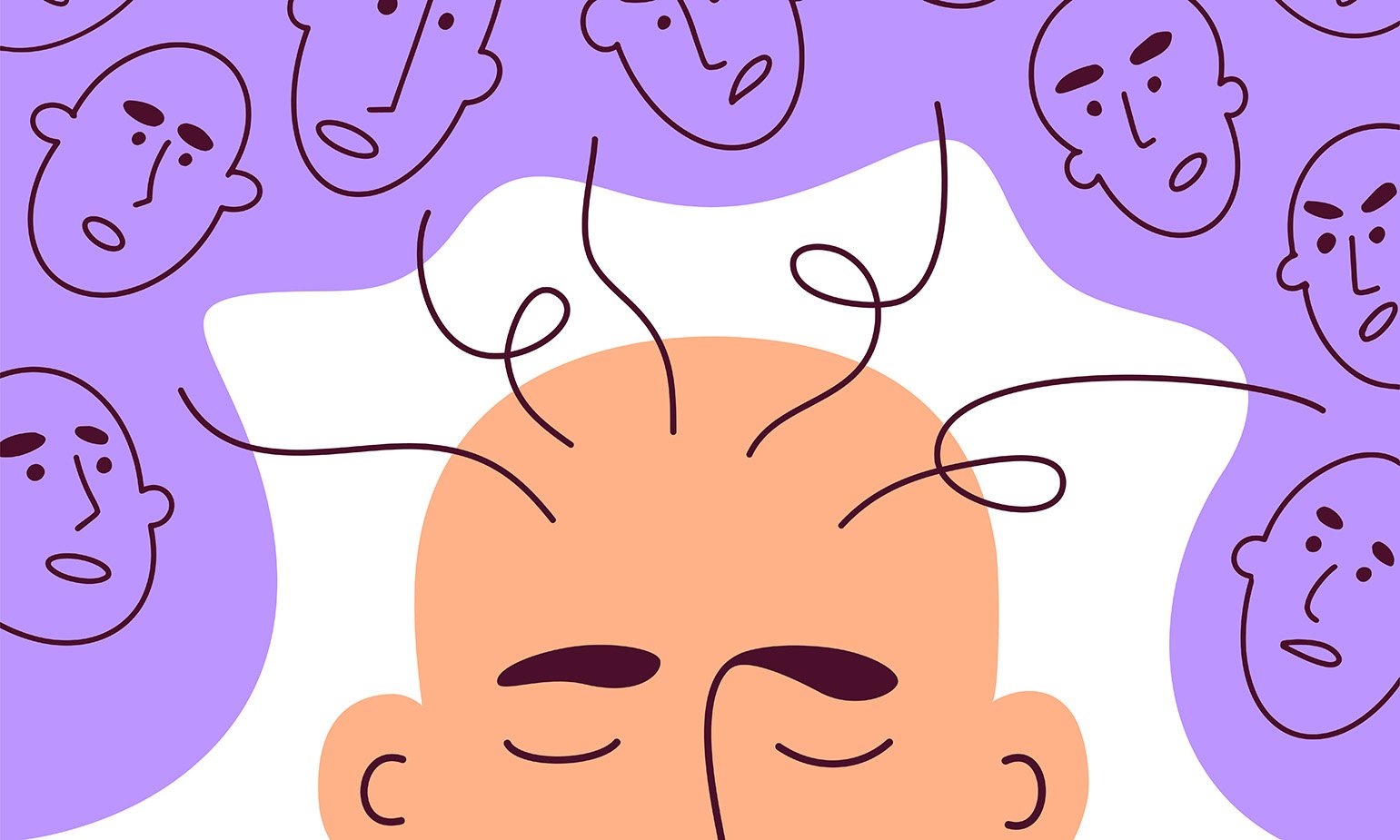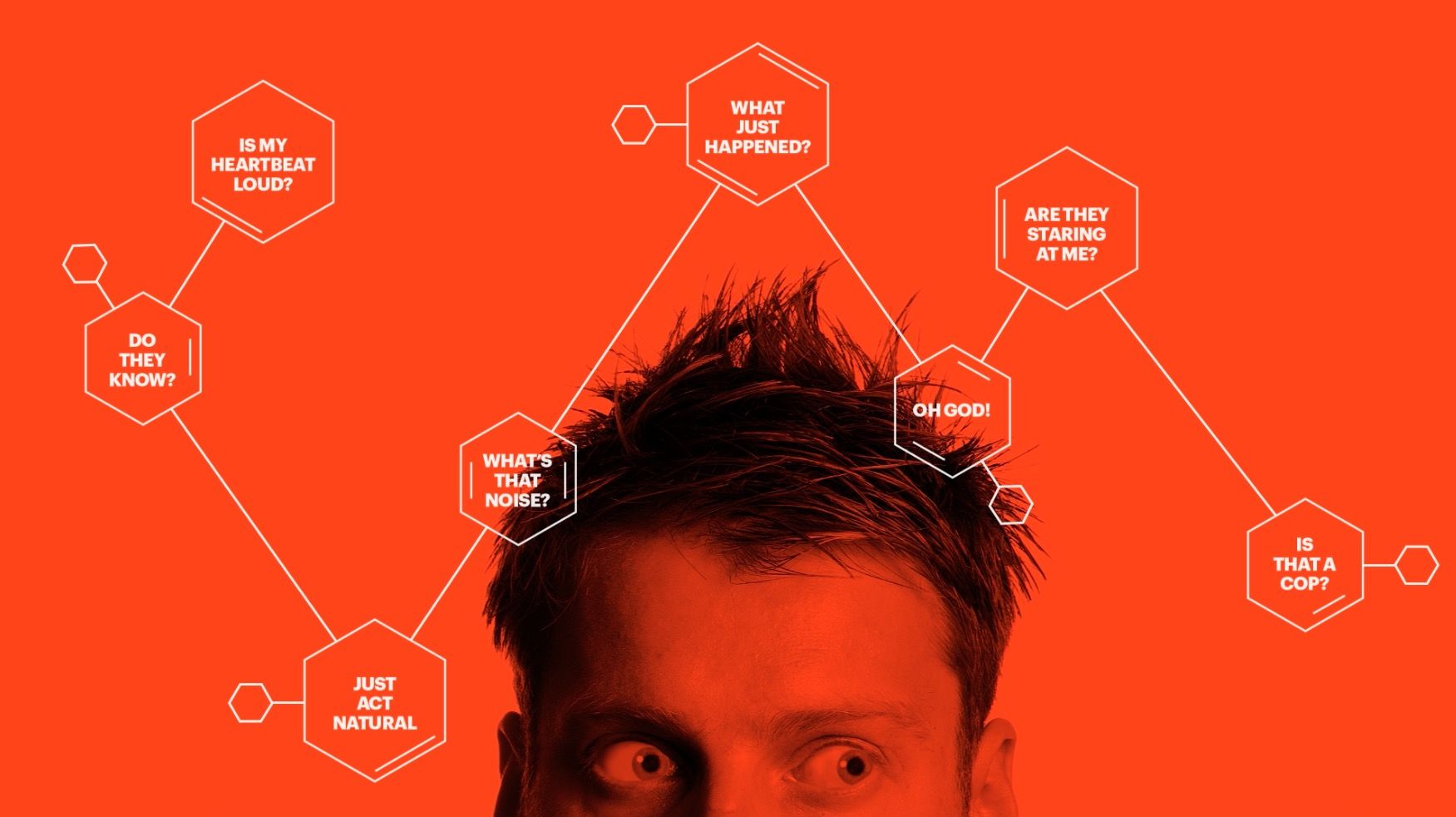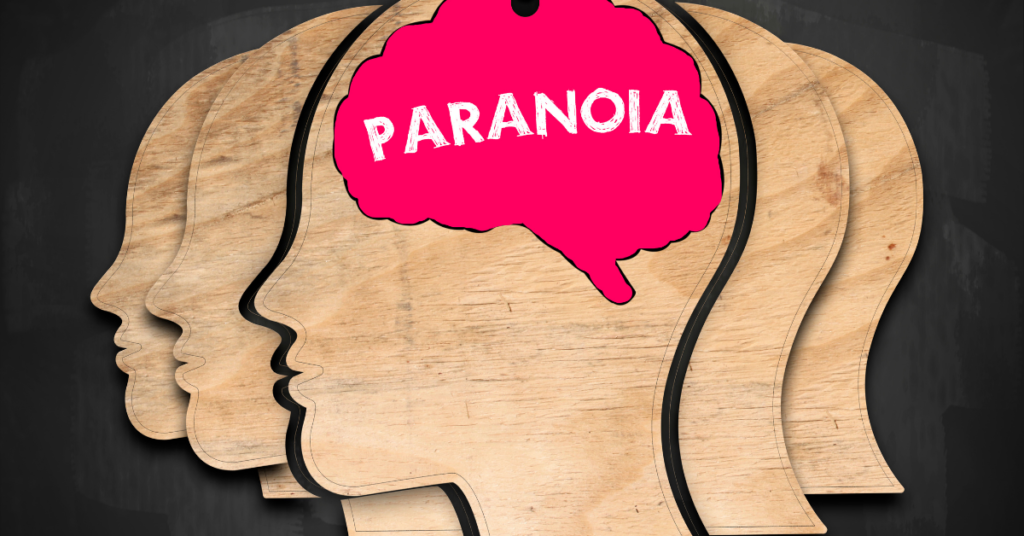Paranoia is a common mental illness that affects millions of people around the world every day. It is characterized by intense feelings of distrust and suspicion, sometimes to the point where it becomes irrational. When this happens, paranoia can have a negative impact on your life both at home and in public. This post will discuss how you can identify symptoms of paranoia as well as some ways to treat it.
Contents
What Is Paranoia?

aranoia is a chronic mental illness in which the sufferer has delusions of persecution or grandeur. Paranoia is a severe mental disorder characterized by persistent delusions of persecution, threats, or exaggerated self-importance. People with paranoia often have a strong belief in their own superiority and may not accept the opinions and feedback of others as valid. While paranoid individuals are suspicious of other people’s actions, they typically do not recognize that those beliefs represent mere suspicion rather than veritable fact. The focus on unproven suspicions has an impact on interpersonal relationships. It can cause significant problems at work and school for the sufferer. It is for friends and family members as well who care about them.
Signs of Paranoia

These are some signs of paranoia:
Trust Issues
The most common sign of paranoia is the lack of trust in others. This symptom is often the most worrisome for family members and loved ones.
Oversensitivity
Some individuals with paranoid personalities believe that they are special or unique, and often feel as though other people don’t understand them. They also may think that others mean to harm them when there’s no evidence for this belief at all.
Unusual Behavior
A person suffering from paranoia might act inappropriately or show signs of unusual behavior such as avoiding social situations altogether and engaging in isolated activities like reading, writing, watching television, playing video games, and browsing the internet. This can lead to feelings of loneliness and isolation which only exacerbates their problems further. In severe cases, a person displaying these behaviors could be considered delusional if it affects his/her ability to live a normal life.
Easily Offensive
Some individuals with a paranoid personality disorder may be easily offended and take comments or criticism as personal attacks. They might lash out in response to this perceived verbal abuse, causing others to feel threatened by their reactions even when no real harm was intended.
Anxiousness
People who suffer from paranoia often experience severe anxiety that can lead them down a dangerous spiral of self-destructive behavior such as substance abuse and/or engaging in risky sexual activity while under the influence of drugs or alcohol.
Extreme Suspiciousness
Some people go beyond normal suspicions and believe they are being spied on (persecutory delusions) or cheated on (delusional jealousy). If you think someone is spying on you or trying to sabotage your life, it may be time to seek medical help.
Frequent Anger Issues
If an individual suffering from paranoia has frequent anger issues including irritability and hostility toward others, he/she might benefit from seeking treatment for their disorder as soon as possible. This hostile reaction often serves no purpose other than further alienating the person with paranoid personality disorder while pushing loved ones away at the same time. If a person is constantly angry about anything and everything, this could indicate a need for psychiatric care rather than family support.
Causes of Paranoia

These are some of the root causes of paranoia:
Biological Factors
Some experts believe that paranoia may be a result of a combination of environmental and biological factors. For example, it’s possible that someone who has a family history of mental illness is more likely to develop paranoid symptoms.
Brain Injury
Head injuries or damage to the brain can lead to paranoid thoughts or behaviors. This theory is still being studied, however, so more research is needed in this area.
Drug Abuse
People who abuse drugs or alcohol are at an increased risk of developing paranoid symptoms. This may be due to the fact that many drugs (especially hallucinogens) alter a person’s perception of reality, which could lead to them becoming more suspicious and distrustful of others.
Stressful Life Events
Life events that are highly stressful can cause paranoid thoughts in some individuals. This may be due to the fact that stress triggers chemical changes inside the brain, which could lead a person suffering from paranoia believing they’re under threat or danger when there’s no evidence for this at all.
Mental Disorders
Individuals with certain mental illnesses such as schizophrenia and bipolar disorder often experience signs of paranoia as well. People who suffer from these disorders tend to misinterpret their environment and/or other people around them because of faulty thinking patterns (such as jumping to conclusions based on limited evidence) and delusions (irrational beliefs). However, it is possible for someone with one of these conditions to also have an accompanying personality disorder like a paranoid personality disorder.
Insomnia
In some cases, paranoia as a symptom can be triggered by a lack of sleep. For example, if you don’t get proper rest every night or regularly have problems sleeping through the night, it’s possible that your paranoia might become worse. These sleep issues tend to occur more often in people with mental health disorders, so it’s important not to overlook this as a potential cause of paranoid thoughts.
Life Experiences
Some people develop paranoid thoughts after going through specific life experiences such as physical or sexual abuse, legal issues, and/or growing up in a dysfunctional family.
Medical Conditions
It’s also possible for someone to experience signs of paranoia if they have certain medical conditions like Alzheimer’s disease. This is often characterized by memory problems. Other medical conditions are hypothyroidism (a condition that occurs when your body doesn’t produce enough thyroid hormones which can lead to depression and other mood disorders), liver damage (caused by drinking too much alcohol over an extended period of time), and AIDS.
Negative Impacts of Paranoia

These are some negative effects of paranoia:
Social Isolation
People with a paranoid personality disorder often withdraw from social situations and become isolated. This is because they feel like they can’t trust anyone. That is why they’d rather avoid any kind of interaction altogether.
Anxiety and Depression
Paranoia can cause a great deal of anxiety and depression in people who suffer from it. This is because the constant fear and suspicion takes a toll on them emotionally, which can lead to feelings of sadness, worthlessness, and hopelessness.
Anger Issues
People who are paranoid often have problems managing their anger. They may react angrily to minor things or lash out at loved ones for no reason whatsoever. This hostile reaction often serves no purpose other than further alienating the person with a paranoid personality disorder and increasing their feelings of hostility. This can also lead to problems at work or school.
Lack of Motivation
A person’s motivation tends to decrease when they experience feelings of paranoia and mistrust toward other people, which can make it difficult for them to get things done in their daily life (such as taking care of themselves, doing chores around the house, etc.). This lack of motivation makes sense considering that if a person believes everyone is out to harm them in some way or form, then why would they want to take any action?
Social Retaliation
Paranoia often leads individuals who suffer from this disorder into believing that others are conspiring against them. When someone has these kinds of thoughts about another person without any concrete evidence supporting it whatsoever (or even after being presented with evidence that disproves the paranoia), they may lash out at that person. This could involve spreading rumors about them, verbally attacking them, or even physically assaulting them.
Diagnosis of Paranoia

To diagnose paranoia, a mental health professional will typically look for signs of persecutory delusions (beliefs that others are out to harm you), suspiciousness or mistrustfulness, and Ideation Disorder (a condition characterized by abnormal thoughts). If it’s determined that the person meets all of the criteria for paranoid personality disorder, they would be diagnosed with that.
A doctor may perform tests and examinations to rule out other medical conditions that could cause similar symptoms before making a diagnosis of paranoid personality disorder.
Treatment For Paranoia

There are many treatment options for paranoia. In some cases, a person’s paranoia will decrease over time as they form healthy relationships with other people and find ways to cope with their feelings of anxiety and mistrust.
Medications
Medications are often effective at treating paranoia. The most common types of medications used to treat this disorder are anti-psychotics and antidepressants. This can help reduce the severity of a person’s symptoms. It is by changing the way their brain responds to certain chemicals in it.
Cognitive Behavioral Therapy
A type of psychotherapy that focuses on teaching people coping skills for dealing with difficult situations. This is also very effective at treating paranoid personality disorders. This form of therapy involves talking through events from your past. This may have contributed to feelings of anxiety about other people now, then learning how to replace those thoughts with healthier ones instead. You will then practice these new ways of thinking so they’ll become habits over time. This is so you won’t feel obligated to think negatively toward others anymore).
Self-Help
There are many self-help techniques you can use to cope with feelings of paranoia, such as:
- Writing in a journal when you begin feeling paranoid. This is so that you can vent your emotions and get them out of your head.
- Trying deep breathing exercises to help yourself relax. This is when anxiety begins creeping up on you. This will also increase the amount of oxygen flowing throughout your body.
- Listening to calming music or watching funny videos online whenever negative thoughts start taking over.; however, these distractions may be enough for someone who doesn’t want professional treatment to feel better.
- Trying to stay positive and hopeful even when things seem bleak can be difficult. But it’s worth a shot if you’re looking for long-term relief from paranoia.
Conclusion
In conclusion, paranoia is a chronic mental illness that can be debilitating and negatively impact a person’s quality of life. However, there are treatment options available to help you cope with this disorder. This is so it doesn’t have as much control over your life anymore. There are many treatment options for treating paranoia, including medications and cognitive behavioral therapy.
If you are looking for affordable Online Counseling MantraCare can help: Book a trial therapy session


